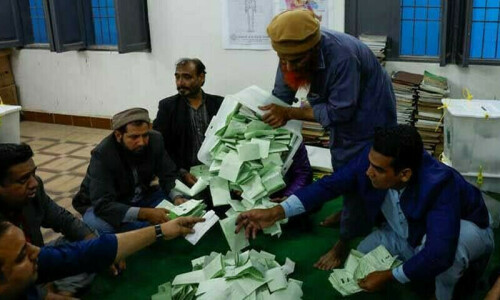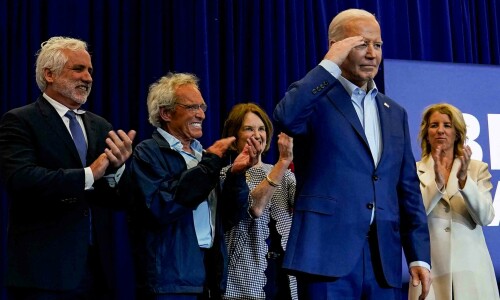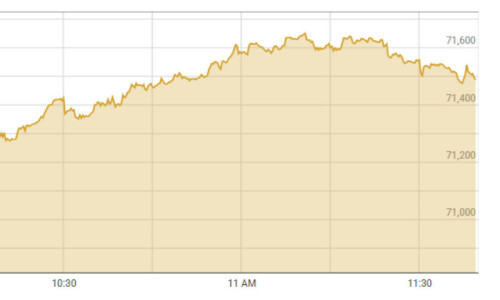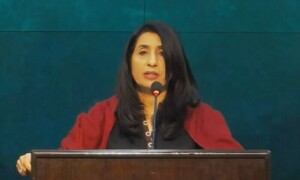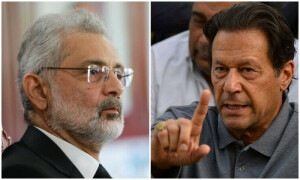PRESIDENT Joe Biden’s review will lead to a number of foreign policy changes in this region with the US seeking to try and reinstate the nuclear deal with Iran, an end to the catastrophic war in Yemen and to reconsider the timing of its troop pullout from Afghanistan.
Iran and several world powers, led by the US, signed the deal during the second tenure of president Barack Obama in 2015. The accord placed significant restrictions on Iran’s nuclear programme. In exchange, Iran secured relaxations in the long-running, crippling sanctions against it.
Hawks within the Trump administration led by his son-in-law Jared Kushner, who was developing close personal (some suggest business) ties with the leaders of Saudi Arabia and the UAE, besides the right-wing, hard-line Netanyahu government in Israel, claimed that Iran was not honouring the deal.
And in 2018, the president unilaterally scrapped the agreement called the Joint Comprehensive Plan of Action (JCPOA). The result: a year later, Western intelligence sources started picking up signs Tehran had actually started to restore some elements of its nuclear programme.
Pakistan will need to put its best foot forward in policy responses to come out ahead in the face of so many changes.
The Biden administration has indicated it would like the deal restored. As part of a new arrangement, Iran will have to reverse some of the advances that the US believes were made since the 2015 agreement was binned. Iran says for any negotiations to start the sanctions have to go first.
These are negotiating positions and it is not clear how many concessions each side is willing to make in order to reach an agreement. But Biden is invested in the issue, having played a major part in concluding the JCPOA when he was vice president, so progress is a distinct possibility.
At the same time, Biden has unequivocally said he is cutting support to the Saudi-led war in Yemen and said it was moving diplomatically to secure an end to the conflict where Yemen’s ethnic Houthis are pitched against Saudi Arabia-UAE-led forces, earlier backed by the US, UK and France.
The Saudi-UAE-led coalition says the Houthis (Zaidi Shias) are backed by and have plans to destabilise the region at Tehran’s behest. Iran denies these allegations and says its support is diplomatic and on humanitarian grounds, not military.
The current conflict was triggered following Yemen’s ‘Arab Spring’ in 2011 when long-time autocrat president Abdullah Saleh handed over power to his deputy, leading to friction within the country. The Houthi militia took over the north-western parts of the country including capital Sana’a by 2014-15.
The Saudis were hoping to end the conflict by asserting control over the country ‘within months’ of starting their campaign in 2016 but, five years later, the tenacious Houthis have still not allowed the coalition control beyond the port city of Aden where the Riyadh-backed Yemeni government sits.
The conflict involving massive air bombardment and a sea blockade of Houthi-held areas by the coalition has created a humanitarian catastrophe leading to thousands of deaths, with aid agencies reporting mass malnutrition and disease, given the paucity of supplies including food. Children have been the main sufferers.
The Biden administration review will clearly have an impact beyond the Middle East as the domination of Saudi Arabian interests in US policy will diminish now, though Riyadh will remain a key US ally, and a more rounded policy will emerge which will include engagement with Iran.
At the same time, the new US administration is also reviewing the timing/conditions of its predecessor’s troop pullout from Afghanistan. Biden and his key advisers seem to be questioning the commitment of the Afghan Taliban to end the violence. They say any pullout will be tied to declining violence and a negotiated settlement between the Taliban and the Kabul administration.
All of these policy changes will have an impact on Pakistan. And we have not even talked of India’s unilateral annexation of Kashmir and the BJP government’s domestic worries which could see New Delhi seeking a diversion by upping its rhetoric or even rasher action against Pakistan.
At best, this is a challenging international, and more significantly regional, environment. Pakistan will need to put its best foot forward in policy responses to come out ahead in the face of so many changes in areas which can, and will have, a direct bearing on its well-being.
So where is it in policy response formulation and also in developing a consensus within the country on how to best tackle the issues being thrown up by fast-paced changes in the region? A couple of examples should suffice.
On Kashmir Day (Friday), Prime Minister Imran Khan addressed a public gathering in Azad Kashmir and announced that Islamabad would be prepared to let the Kashmiris opt for an ‘independent’ homeland if they voted for Pakistan in a plebiscite.
A few hours later, the Foreign Office felt compelled to issue a statement, saying Pakistan’s stance on Kashmir was consistent as in the past and Islamabad sought a solution to the dispute in accordance with the UN resolutions.
I, for one, could not understand the FO’s compulsion to release what seemed to be a clarification of the prime minister’s remarks. So much for every office-holder and institution of the Islamic Republic of Pakistan being on the same page even in such a critical area.
Forging a wider political consensus seemed a million miles away too as having failed to push through a constitutional amendment in parliament, seeking the election of senators by a show of hands, rather than a secret ballot, the government seems to be trying a different route.
Unnamed ministers have told the media that the cabinet has approved the promulgation of an ordinance to effect changes to the Election Rules to legalise the show of hands. This may be another political hot potato which will end up in the judiciary’s lap, perhaps forcing the Supreme Court to field charges of being partisan whichever way it decides.
This, in effect, is an illustration of how Pakistani leadership is responding to a myriad regional challenges. Add domestic issues such as the state of the economy to this and an unsettling scenario starts to emerge. Need one say more?
The writer is a former editor of Dawn.
Published in Dawn, February 7th, 2021



















